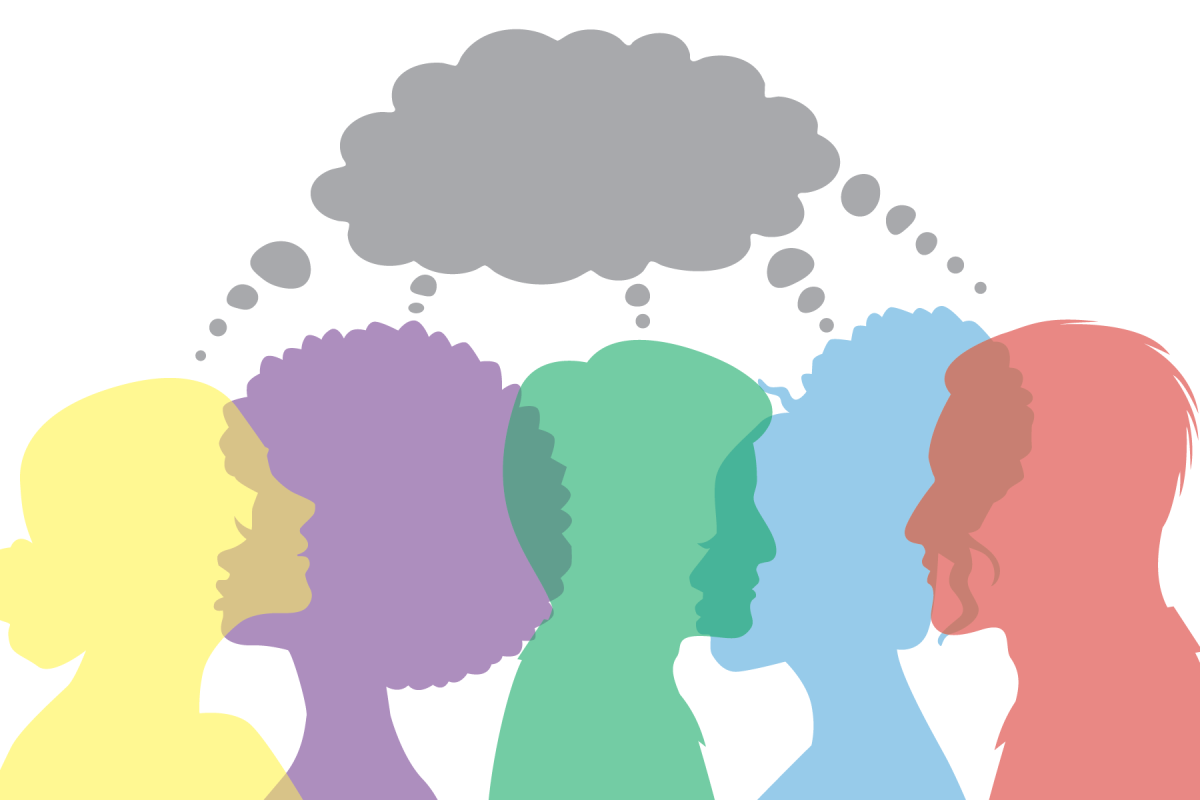Whenever I engage in the time-honored tradition of doomscrolling, I can only hope that my time will be well spent. I might come upon a truly ridiculous meme, a compilation of the best awkward moments on the “Wicked” press tour or a thought-provoking “hot take,” and thereby justify the time I’ve wasted by focusing on the intellectual enrichment I can sometimes derive from hours spent scrolling. As such, I’ve begun to raise my expectations for social media.
Of course, it might seem a little ridiculous, or even naive, to have high expectations for the experiential quality of an activity designed to produce cheap satisfaction for your brain. But really, is it wrong for me to expect a little bang for my buck?
Thanks to this mindset, I have found myself both increasingly concerned and annoyed at what comes across my screen more and more often as of late: plagiarism. While it was once thought to only be a threat in academic settings, I am here to spread the word regarding its consequences in the context of brain-rotted doomscrolling. Ideological plagiarism exacerbates political extremism, and social media provides the perfect vector by which to make the practice more commonplace.
An important distinction to make before proceeding: What I describe as ideological plagiarism here does not include the regurgitation of humorous moments from one point or another in the course of internet history. In fact, I consider the backbone of internet humor to be well-timed references, or even verbatim quotes, from different moments in the internet timeline. I specifically refer to opinions or “takes,” whether they be regarding popular culture, social phenomena or politics.
Opinions spread like wildfire, with users choosing sides to curry favor among the online populus
A hallmark of current internet culture is the grapevine. Opinions spread like wildfire, with users choosing sides to curry favor among the online populus or vlogging their perspectives to farm engagement and promote their own celebrity. In the process, the conflicting voices usually peter out, with only the most widely accepted opinions remaining. However, acceptance has become a byproduct of clamoring repetition instead of logical substance.
When Taylor Swift released her new album, it took less than a day to see the same variety of phrases permeating comment sections on TikTok. The internet had decided that Swift was MAGA now, her lyrics were racist dog whistles and her merch was emblazoned with white supremacy symbolism.
While everyone is, of course, entitled to believe whatever they wish about Swift, the moment that small alarm bells began to ring inside my head came during a conversation with a friend who responded to the question of why they no longer liked Swift by rattling off the above trilogy of offenses in a sentence that I recognized in a flash of déjà vu.
This phenomenon of thoughtless regurgitation has spread into the political sphere and portends disaster if left unchecked.
I paused to think, and realized where I’d heard it before: in TikTok comment sections, parroted with increasing frequency by those who wished to contribute to the discourse but couldn’t be bothered to formulate an original sentence, instead deciding to harvest the low-hanging fruit of others’ opinions.
My alarm heightened when I enquired further, and received no substantive justification from my friend as to why they believed this; the conversation ended abruptly.
It’s one thing for ideas to become ubiquitous in internet circles, where algorithms create feedback loops that make the same lukewarm takes unavoidable. It’s another thing entirely for those takes to escape the online bubble and be regurgitated verbatim without any consideration of whether or not a substantive logical basis exists from the people repeating it.
However, I suspect that a large portion of the people reading this article would find themselves unperturbed at the thought of unsubstantiated rumors about Swift. More concerningly, this phenomenon of thoughtless regurgitation has spread into the political sphere and portends disaster if left unchecked.
Following the assassination of Charlie Kirk, a wide variety of perspectives first emerged across various social media platforms. However, before long, I began to observe a similarly distinct homogenization of viewpoints akin to the discourse surrounding Swift, only now on a topic with much more serious implications.
A phrase that habitual doomscrollers might have come across at one point or another is some variation of “only two original sentences left” or “there goes the last original sentence,” usually in a comment section on a video containing such intentionally absurd statements that the viewer is left with no recourse but to assume that this phrase can’t possibly have been spoken or written before.
However, in the era of algorithms, large language models and purity politics, it seems as though the dwindling quantity of original sentences yet to be expressed is no longer indicative of scarce availability, but rather reflects a lack of will within the collective consciousness to express them.
It is far easier to embrace intellectual lackadaisicalness, to simply parrot the opinions that we read in comment sections or in op-eds without bothering to cross-check claims or verify statistics. Based on what I’ve observed in real-life conversations, it seems like that is the path that many are choosing.
If we do not become more guarded in what information we ingest, we run the risk of finding ourselves delving further into extremism and, in turn, putting our democracy at risk.
However, this is an unacceptable path for people to veer toward, since it allows us all to become prime targets for misinformation.
There is a demonstrable relationship between social media usage and impaired capacity for critical thinking, and it is this relationship that gives me the greatest worry when considering the consequences of unchecked ideological plagiarism.
When people see information online, regardless of whether or not they engage with it critically at that moment, their brain processes the experience and files away the information it perceived. When they see the same information repeated 10 different times, it becomes more trustworthy and easier to accept without proof. The difference between these illusory truths and actual self-generated ideas, however, is that only the latter arose from logical processes and conscious justification. Without this foundation, it becomes harder to engage in respectful dialogue, especially on inflammatory political topics, as emotions begin to trump reason.
When respectful dialogue between differing opinions ceases, it not only becomes harder to change minds but also more enticing to engage in confirmatory bias activities, or only acknowledging information that lies in accordance with previously held beliefs.
As if to add fuel to the fire, earlier this year, Meta decided to end their fact-checking initiative. When unverified information is allowed to propagate itself across Instagram, Facebook and the like, the consequences are severe. Research not only demonstrates that misinformation is strongly associated with the development of extremist ideology, which in turn provokes political violence, but also that those with more extreme opinions are more likely to encounter and believe misinformation, therefore creating a vicious cycle where pockets of the population spiral further and further into provocative engagement bait content, mistaking it for truth.
Except, with the current pattern I’ve been witnessing, it won’t be restricted to pockets of the population for long.
Studies have already indicated that eight in 10 United States voters across both sides of the aisle believe that the members of the opposite party cannot agree on basic facts, much less on policy.
If we do not become more guarded in what information we ingest, we run the risk of finding ourselves delving further into extremism and, in turn, putting our democracy at risk.
Of course, this could all be nothing more than paranoia, and I could actually be falling victim to the very same cognitive bias I outlined above. Perhaps I saw someone talking about this on TikTok, and my brain convinced me it was all my own idea. Regardless, the fact of the matter is that the solution isn’t to disengage entirely. Instead, before you make that TikTok comment, or post that think-piece on your Instagram story, consider: Do you believe what you’re saying or did you just read it somewhere?


